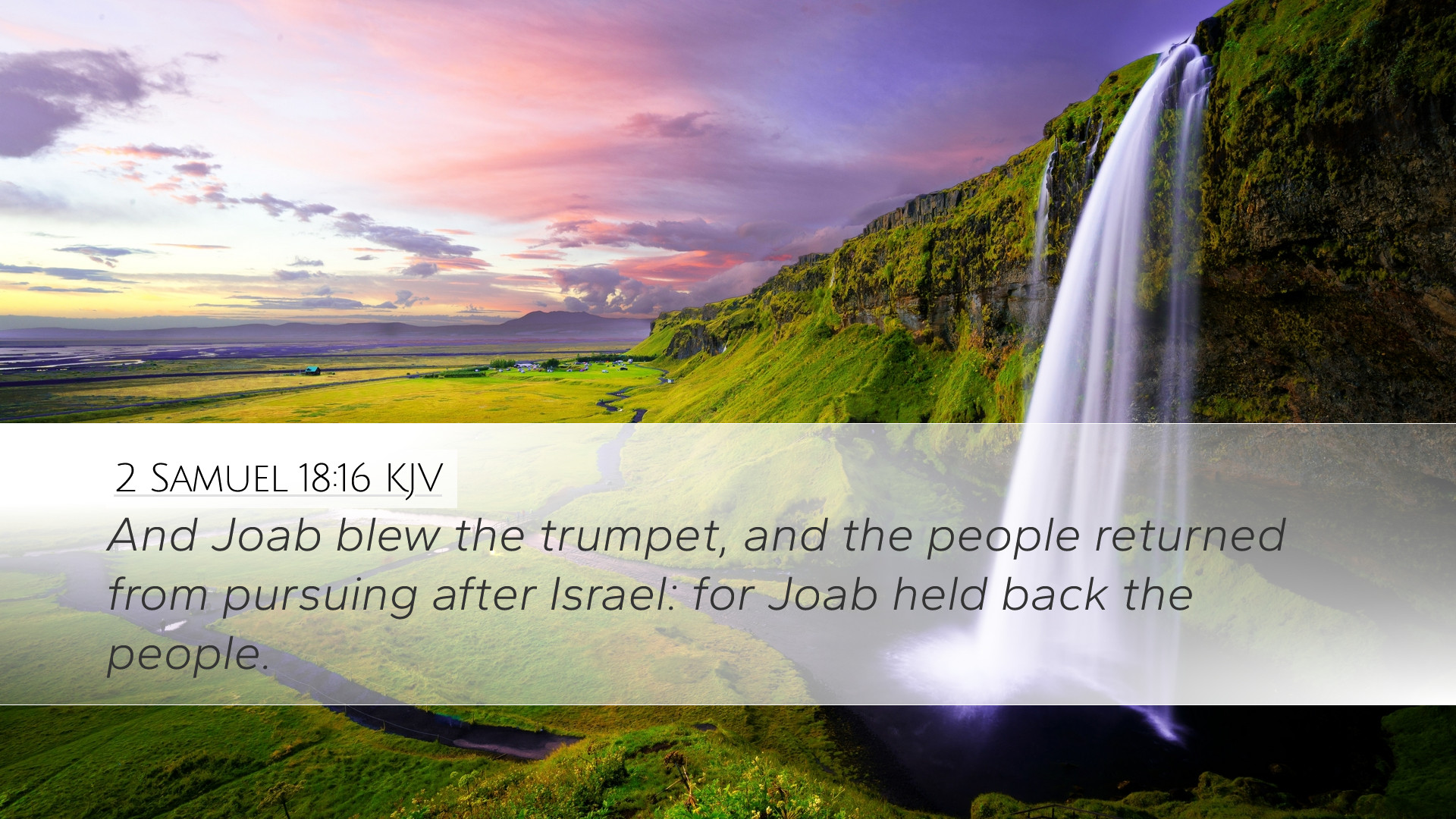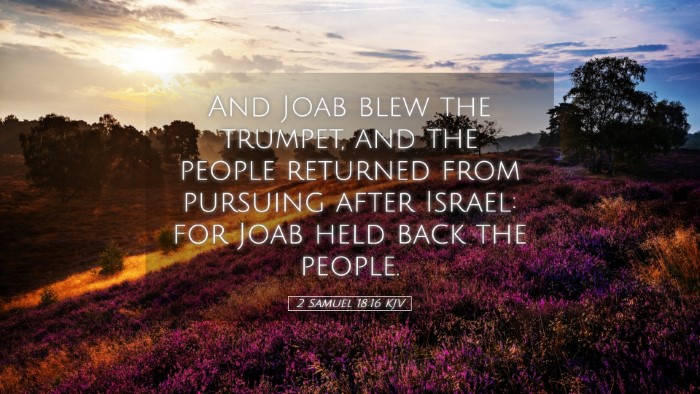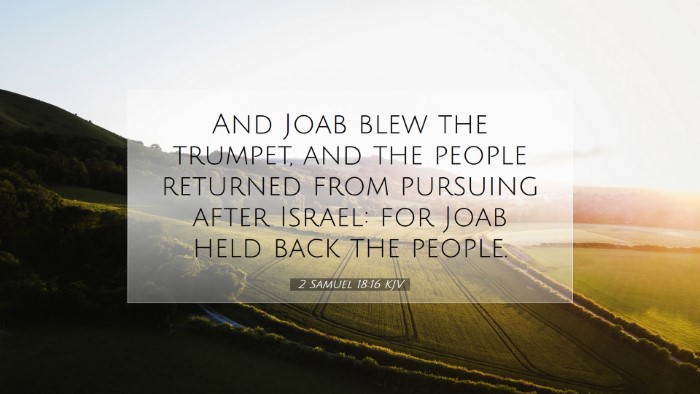Commentary on 2 Samuel 18:16
Verse: "And Joab blew the trumpet, and the people returned from pursuing after Israel: for Joab held back the people."
Contextual Overview
2 Samuel 18 marks a pivotal moment in David's reign as king of Israel. The chapter narrates the battle between the forces loyal to David and those led by Absalom, David's son. This verse encapsulates a crucial decision made by Joab, David’s military commander, which not only reflects the dynamics of leadership but also underlines the gravity of the conflict at hand.
The Role of Joab
Joab is a complex character in the narrative of David's reign. His leadership and decisiveness are evident in this passage. Albert Barnes notes that Joab serves as a "decisive commander," making decisive choices that often impact the morale and direction of the army.
Matthew Henry emphasizes Joab's role as a mediator, illustrating that he keeps the people from pursuing further violence against Absalom’s forces. This act shows Joab's understanding of the broader implications of prolonged conflict and his loyalty to David's kingship, despite his own personal ambitions.
The Symbolism of the Trumpet
The blowing of the trumpet holds rich symbolic meaning throughout the Scriptures. In ancient Israel, the trumpet was a tool for signaling important messages and called to assembly. Adam Clarke points out that Joab's use of the trumpet signifies a command that transcends mere military strategy; it is a moment of authoritative transition from warfare back to peace.
Implications for Leadership
The command to cease the pursuit is a crucial teaching moment in leadership. Strong leadership often requires not only the ability to fight but also the wisdom to know when to stop. This discernment can prevent unnecessary bloodshed and foster a culture of reconciliation. It underscores a biblical principle that effective leadership involves a balance between justice and mercy.
Followed by Reflection on the People
The response of the people to Joab’s trumpet is telling. They return from their pursuit, indicating a level of respect and obedience to his authority. This illustrates the necessity of trust between a leader and their followers. Indeed, Joab's ability to hold back the people from further conflict underscores the importance of having a leader who is respected and whose decisions are followed.
Conclusion on Joab's Leadership
In conclusion, Joab’s action in 2 Samuel 18:16 serves as a profound lesson in leadership dynamics. It exemplifies the importance of making timely decisions that protect the greater community, showcasing a leader's responsibility not just to command, but to guide toward peace. Both Barnes and Henry highlight this balance, merging the theology of divine sovereignty with practical command in the realm of human governance.
Theological Reflections
This passage compels theologians to reflect on the nature of authority. Joab’s ability to call back the people reflects God’s ultimate authority over chaos and conflict. As God appoints leaders, He also governs their actions for the greater good, often calling them to act justly and righteously as seen in Proverbs 21:1, "The king's heart is in the hand of the Lord."
Pastoral Applications
For pastors, this verse serves as encouragement in the face of communal strife. The lesson of restraint, made evident through Joab's actions, is vital for shepherding communities through conflict. Pastoral leaders are called to be instruments of peace, guiding their congregants away from divisive pursuits. They must help foster reconciliation rather than discord.
Academic Considerations
Students and scholars examining this verse must consider the literary structure of the passage. The broader context reveals not just a battle narrative but a theological discourse on loyalty, conflict, and the complexities of human relationships within divine providence. Joab’s intervention is a moment laden with theological implications concerning obedience to both human authority and divine command.
Final Observations
Ultimately, 2 Samuel 18:16 offers deep insights into leadership, authority, and the pursuit of peace amidst conflict. This passage elucidates how even military leaders, like Joab, wield their power with a conscience governed by the needs of the greater community. It reminds both modern leaders and congregants that the call to peace remains central in the walk of faith.


